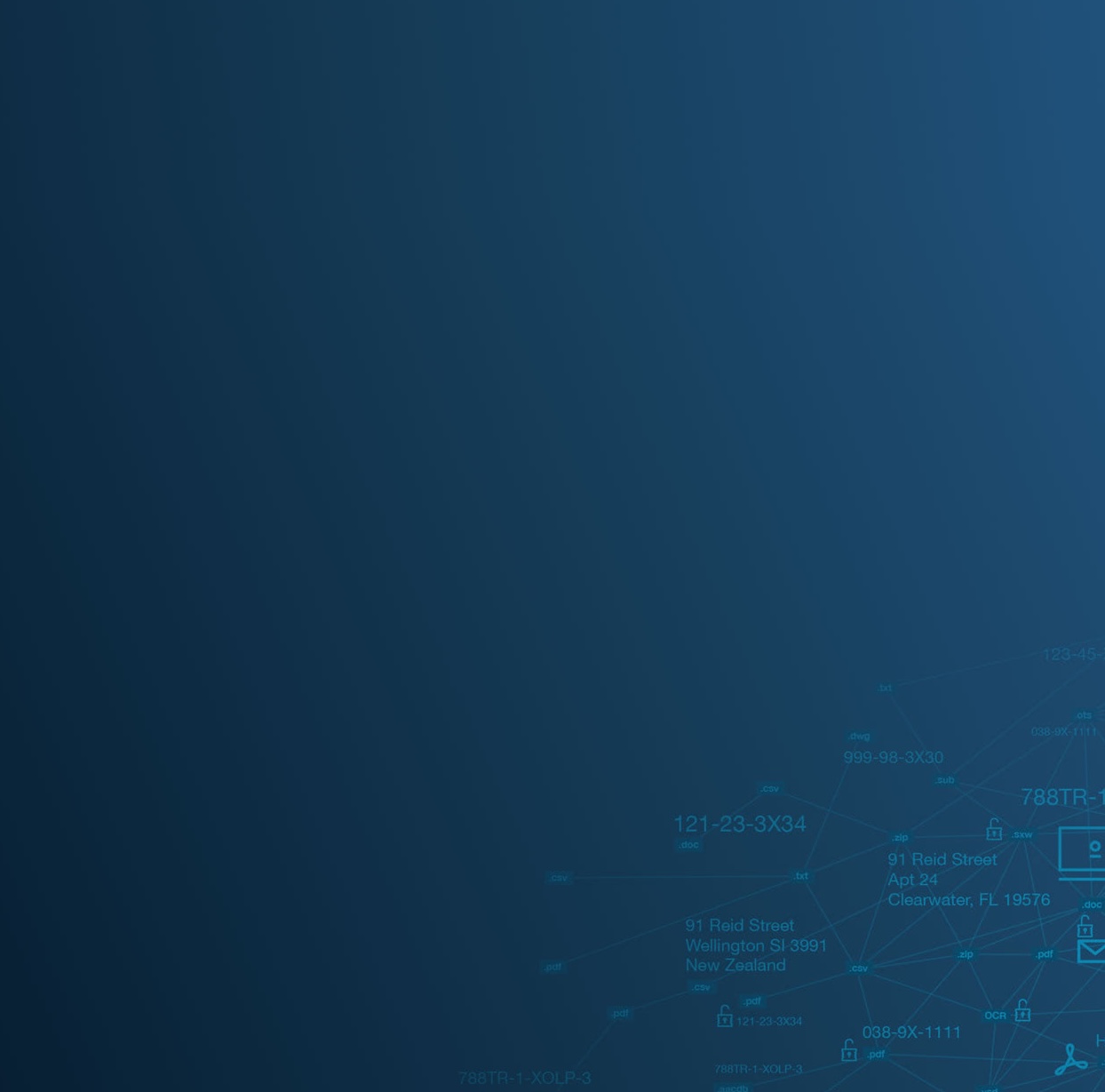Healthcare Data Security – Data Loss Prevention
In the healthcare industry, there is a ton of personal information stored – making healthcare cybersecurity vital. From medical charts and records, prescription and health insurance information, social security numbers, to payment details. Working in healthcare organizations like a doctor’s office, pharmacy, insurance company, or a hospital ensuring the safety of patient data is crucial. Breaches in the healthcare industry are occurring more frequently, making regulation compliance difficult.
An alarming 94 percent of health care companies reported a breach within the past two years, and almost half say that they have suffered five or more breaches in the same period. During that same period, breaches reported to the US Dept of Health and Human Services (HHS) ZERO occurred while the data was in transit, such as in email or HTTP transfer. Instead, 100% of the large breaches occur while the data is at rest.What this means is once a breach has been addressed and handled, being proactive in your security measures can make a huge difference.
Within the healthcare industry, data-in-motion data loss prevention products are a solution without a measurable problem. Spirion carefully analyzed the problems facing the Healthcare industry, and has developed Spirion for Healthcare, a PHI management and data loss prevention tool focused exclusively on data at rest.
The first step to preventing a breach is to detect leaks. Healthcare organizations need to know where their data is before they can secure it. Spirion helps discover, classify, consolidate, and report on PHI. The Healthcare industry has a compelling and immediate need for data-at-rest solutions like Spirion.
Healthcare Regulation Compliance
In the healthcare industry you must be compliant in various Healthcare data security regulations:
- HITECH
- HIPAA
- State Data Breach Laws
- EPCS
- PCI-DSS
If your sensitive data is breached while at rest or in transit, it increases the chance of more security risks. Having a system in place helps prevent security incidents and helps protect:
- Privacy and integrity of medical applications.
- Secure your records and other proprietary information.
- Provide insight into who has access and who is accessing health records and other information that is stored.
- Eliminate the need to spend money on various systems to see which one works; identity finder is all you need to keep the at rest data stored safely.
Healthcare Data Loss Affects Many
The healthcare industry is a giant network connecting various offices and locations. The loss of data does not just affect the office breached or the patient. It can also have adverse effects on:
- Every part of the IT network the information is stored in. For example, if you work for a chain hospital that shares the same system, the entire IT network can be breached.
- Any partner or vendor that works with the office. Vendors and partners also have information that would be on file within one system, this then places their data and business at risk.
- Every employee of the compromised office. Aside from patient, vendor, and partner information being stored within the systems of any given office, employee information is also stored. A breach places them at risk as well.
Tips for Healthcare Data Loss Prevention
Aside from investing in and using the identity finder technology, there are a few other general rules that can help with data loss prevention.
- Reliable Partners – ensure that if you are outsourcing information you are doing so with a reliable, trustworthy partner. Build a great firewall system with this partner to keep hackers out, ensuring data safety.
- HIPAA Rules and Regulations – HIPAA has implemented guidelines for data protection, ensure this is being followed to the letter. HIPAA privacy is just as important in the cyber world as it is in patient interaction.
- Breach Training – any employee, should be trained on how to handle any security breaches and how to report them. Quickly reporting any breach can be helpful in preventing any more data from being compromised. They should know what steps to take and how to act quickly.
- Updated Software for Patch Management– having the most up to date software for patch management can be the difference in your firewall being hacked by cyber criminals.
- Know What is on Your Network – with the constant evolution of technology there are tools to know what all devices are being connected to your network. Knowing what is being used, and how it is being used can help you plan for network updates and security.
- Strictness – you should be very careful and strict when allotting access to important data for your healthcare professionals. Always remember if an employee’s role changes, or if they are let go you need to revoke access to things they no longer need immediately. This can ensure the protected health of proprietary information and records.
At Spirion we understand the importance of cyber security, and we are here to help. From healthcare data loss prevention to data transfer protection we can help provide security solutions. Our technology can help prevent the compromise of patient records all while maintaining your HIPAA Security regulations. We have a solution that can help, let us know what we can do to keep your digital health data safe today!

